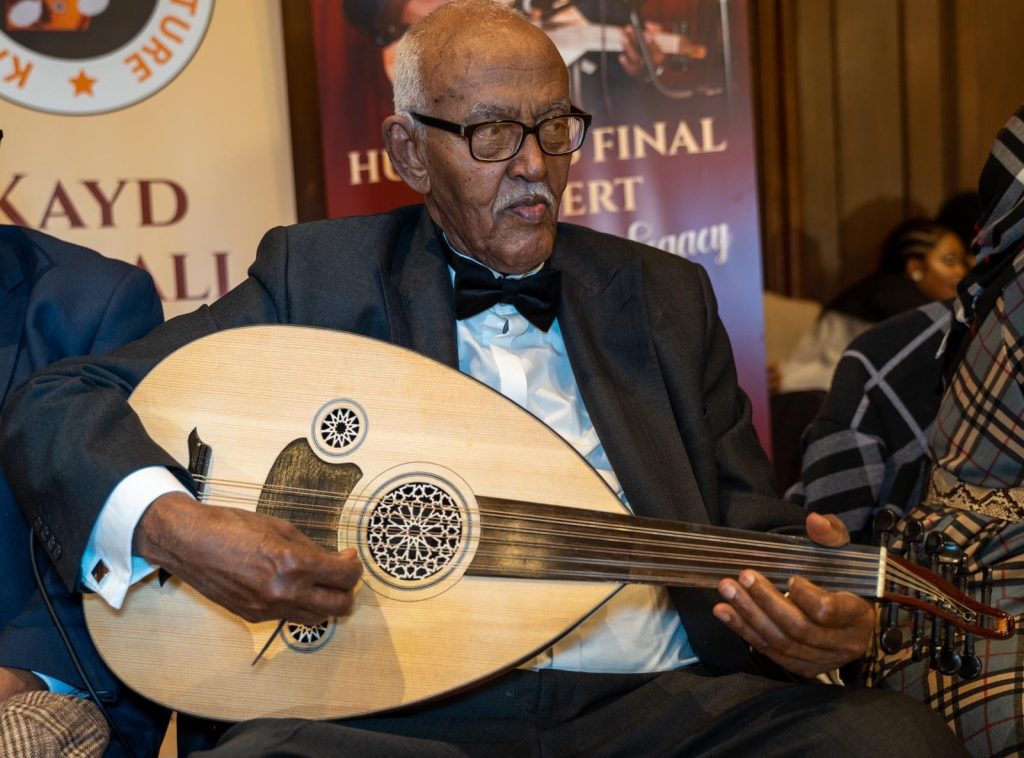Famously known as the “King of Oud,” Mr. Hussein was considered one of the giants of modern Somali music. He had the novel coronavirus.

By Abdi Latif Dahir
Ahmed Ismail Hussein, whose sweet-stringed and melancholic melodies captivated generations of Somalis and made him one of Somalia’s most important musicians, died on Tuesday in London. He was 91.
He had been infected by the novel coronavirus, according to Hanna Ali, the artistic director of Kayd Somali Arts and Culture, based in London, with which Mr. Hussein had been affiliated in recent years.
Mr. Hussein was famous for playing the oud, the pear-shaped lutelike instrument that is central to Arab and Middle Eastern music.
“The oud is my greatest pleasure,” he told a BBC interviewer in 2003. “If there’s an oud lying near me, I’ve just got to play it.”
He moved between Somalia, Djibouti and Britain over the course of his recording and performing career. His music was influential in defining and popularizing the traditional Somali style known as qaraami, which involves a singer or a poet backed by the oud or drum.
Mr. Hussein was born on April 15, 1928, in the coastal town of Berbera in northwestern Somalia. He spent his childhood and teenage years in the Yemeni city of Aden, where his father worked as a police sergeant.
Mr. Hussein said he fell in love with the oud at 14 when he saw a man playing one there. He later apprenticed with the prominent Somali musician and poet Abdullahi Qarshe.
His nickname, Hudeydi, came from his grandfather, who sailed boats to the Red Sea port of Hodeidah in Yemen.
Information on survivors was not immediately available.
Mr. Hussein, keen on preserving and passing on musical tradition, started offering oud lessons at his apartment in London in recent years, Ms. Ali said.
His music and legacy were crucial to Somalis wherever they lived in the world, said the British-Somali novelist Nadifa Mohamed, who began studying the oud with Mr. Hussein in 2012. “His place in our cultural pantheon is fixed.”
Source: The New York Times


